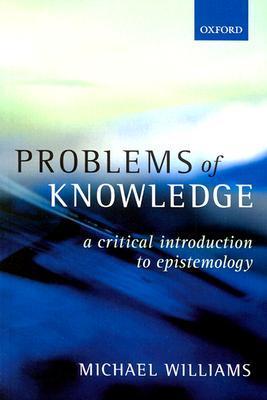A philosopher believes something. A skeptic asks "Why?" The philosopher replies, "Why not?"
That's the book in a nutshell. The history of philosophers constructing meta-belief systems and skeptics cheekily asking why goes back to the Greeks and continues up to the present day.
It is easy to become suspicious that the philosophers are using a lot of precise words and careful buildup to prove that you can tell other people the sky is blue and not feel guilty about it, and that the skeptics' claims that you could be a brain in a vat are not worth thinking about. In other words, the book is merely a way interpret your common sense intuitions about knowledge and what you think.
But you already knew all that, so this book is more about the journey than the destination.
Foundationalism treats knowledge as a tree. The skeptical question is "what is the root?" Coherence treats knowledge as a mathematical graph. The skeptical question is "what is the center?" Contextualism treats knowledge as an environment (in the computational sense) with certain givens. The skeptical question is "why this environment?"
To my mind the book, which is meant to be a way forward for epistemology out of foundationalism and holism, does not answer this last question adequately. You are in a certain context of knowing. You are Rosencrantz and Guildenstern, that is enough. (Except for poor Rosencrantz and Guildenstern.)
The treatment of language communities which is so crucial, to my mind, is left for the end. One explanation of what's so wrong with skeptical arguments is that the skeptics are not taking part in a language community with the people who they question. What does it mean to ask if anything is real while you are pretending to convince another person that nothing is real? How can you define asking or discourse in such a context? Here the medium is more of the message than the message itself is. The right response is to complain that you don't speak alien and you can't understand this alien outlook, not to try to imagine that the alien is saying something.
The treatment of Kuhn and Popper which is at the crux is saved for the denouement. In particular, Kuhn's belief that a new revolutionary theory obliterates the old categories is soft-pedaled by Williams. Contra Williams, we not only don't believe that the ether exists. We believe it's wrong to think about a medium through which light travels. We don't try to explain ether in terms of general relativity either. We just consider it a dead end. That's why Kuhn says it may be too difficult to teach the old dog the new language. The old dog keeps trying to translate it into the old words. But they may not translate unless you go deep down into the assumptions under the language. In other words, you only really change your knowledge if you radically change the context.
So even in this contextual approach, some contexts are more equal than others.
What draws you from one language community to another? What privileges one context over another? Why is knowledge valuable? This is the weakest part of the book from start to finish. Williams seems persuaded by the pragmatic approach, but it is hopelessly intertwined with conventional notions of value that he does not defend at all. Science delivers technological progress, which delivers mastery and achievement of human desires, to what end? As far as I can tell, there is no answer. Williams might have it that asking for an end is like asking for a foundation to knowledge. Instead of an end, he would just suggest that you find yourself in a context with certain cherished values or norms. At some point you will just give up asking to what end and say, this path is mine, I can have no other.
I feel more informed having read the book. But I still have the nagging suspicion that the common-sense understanding of knowledge is much richer and more potent than the dissection in this book.

